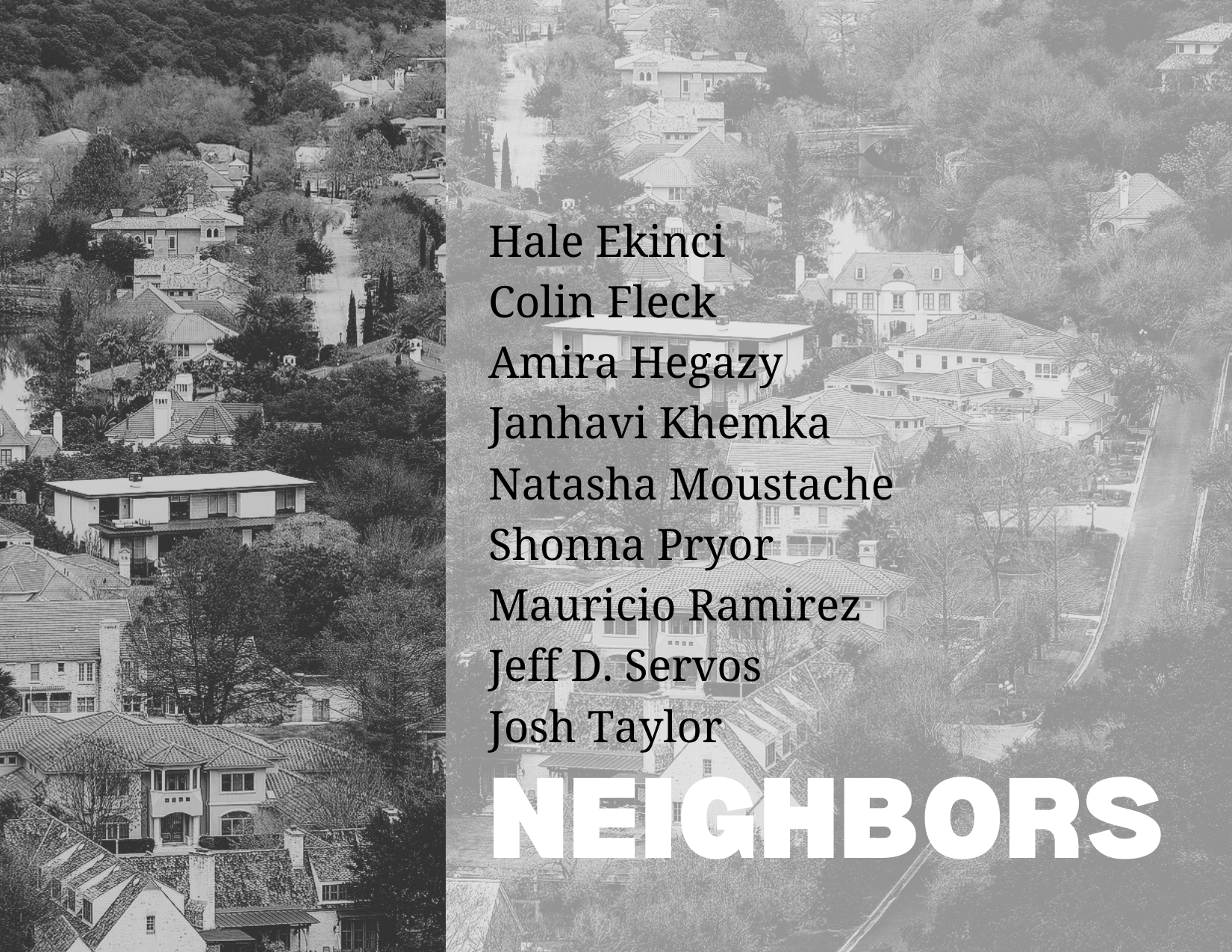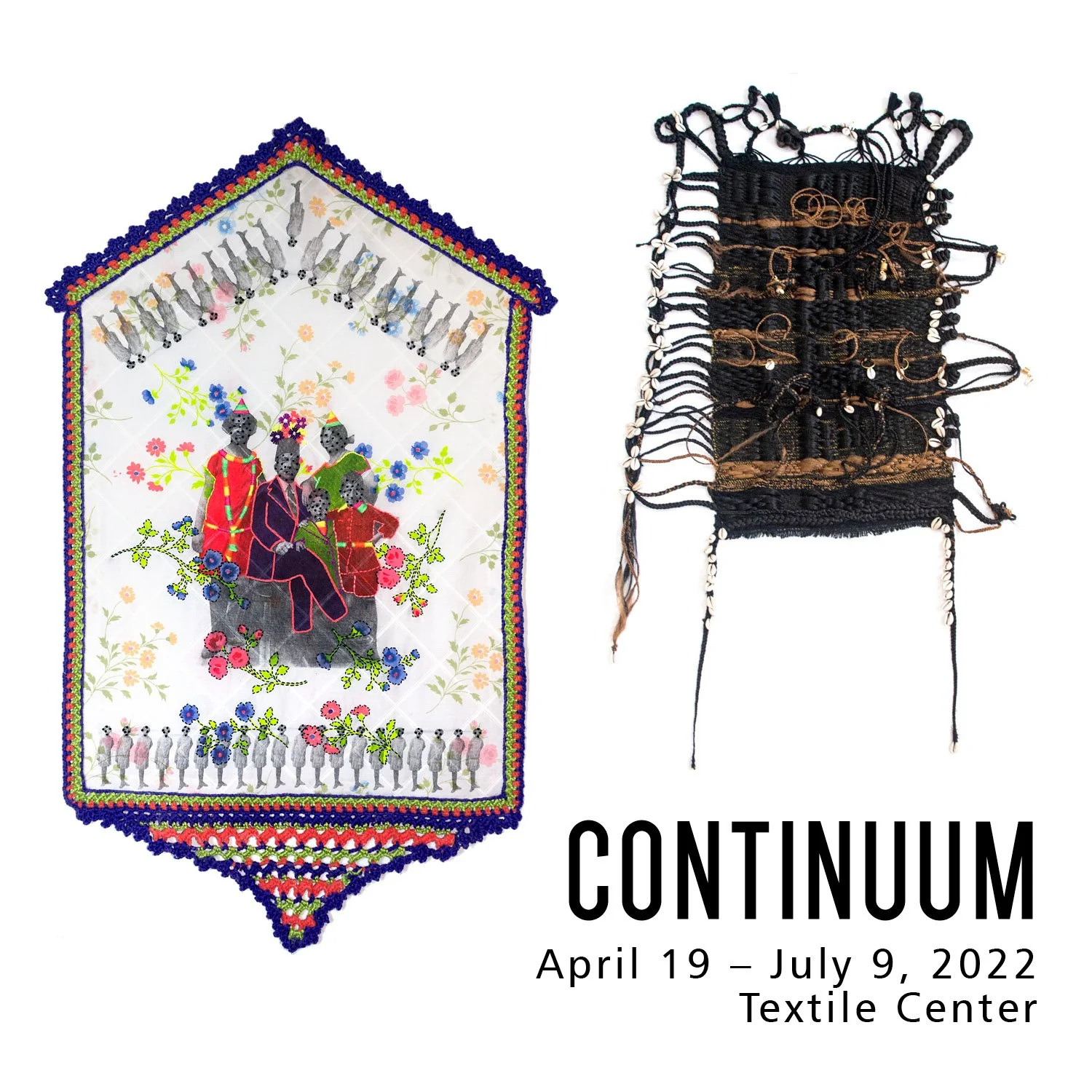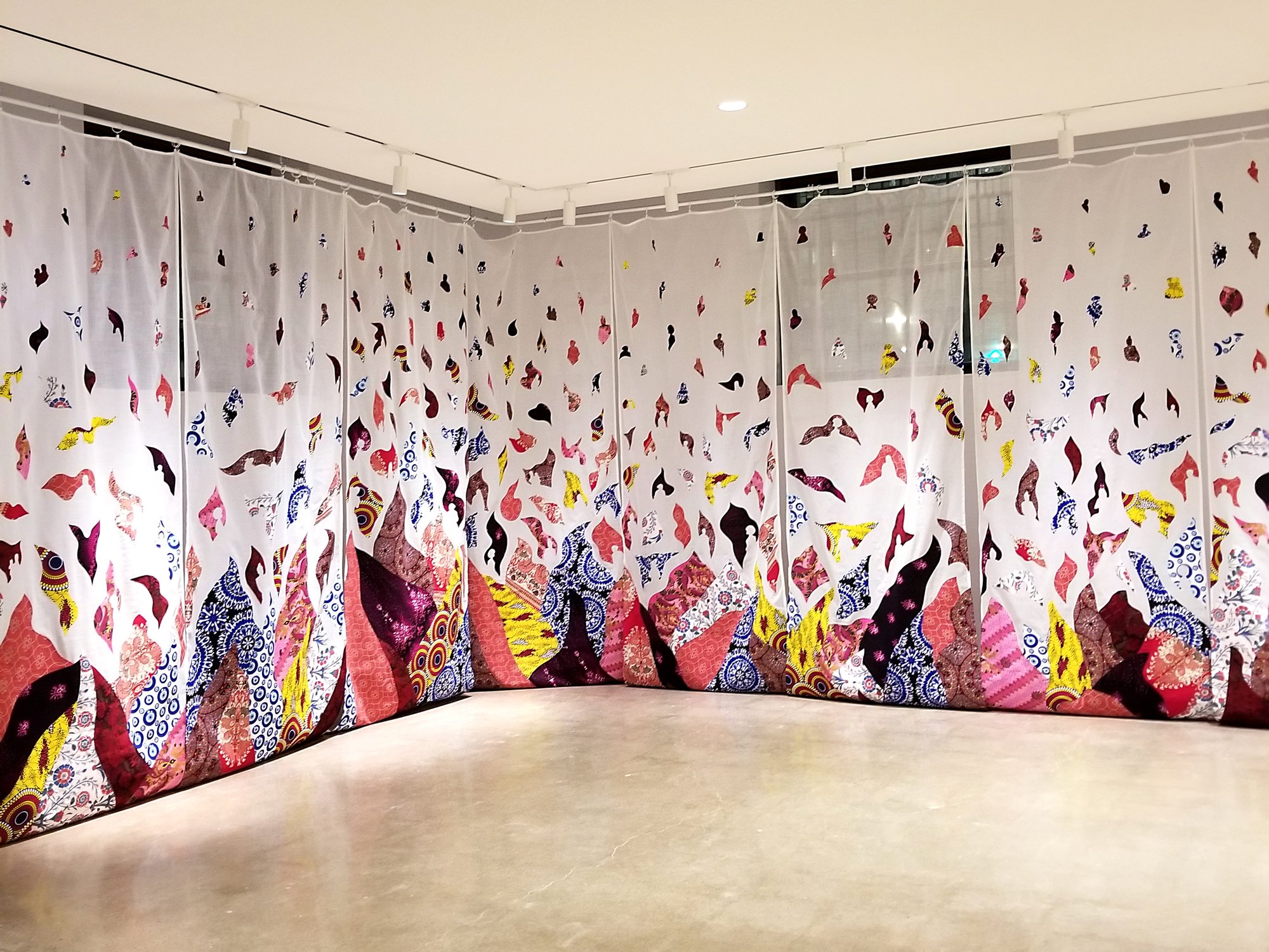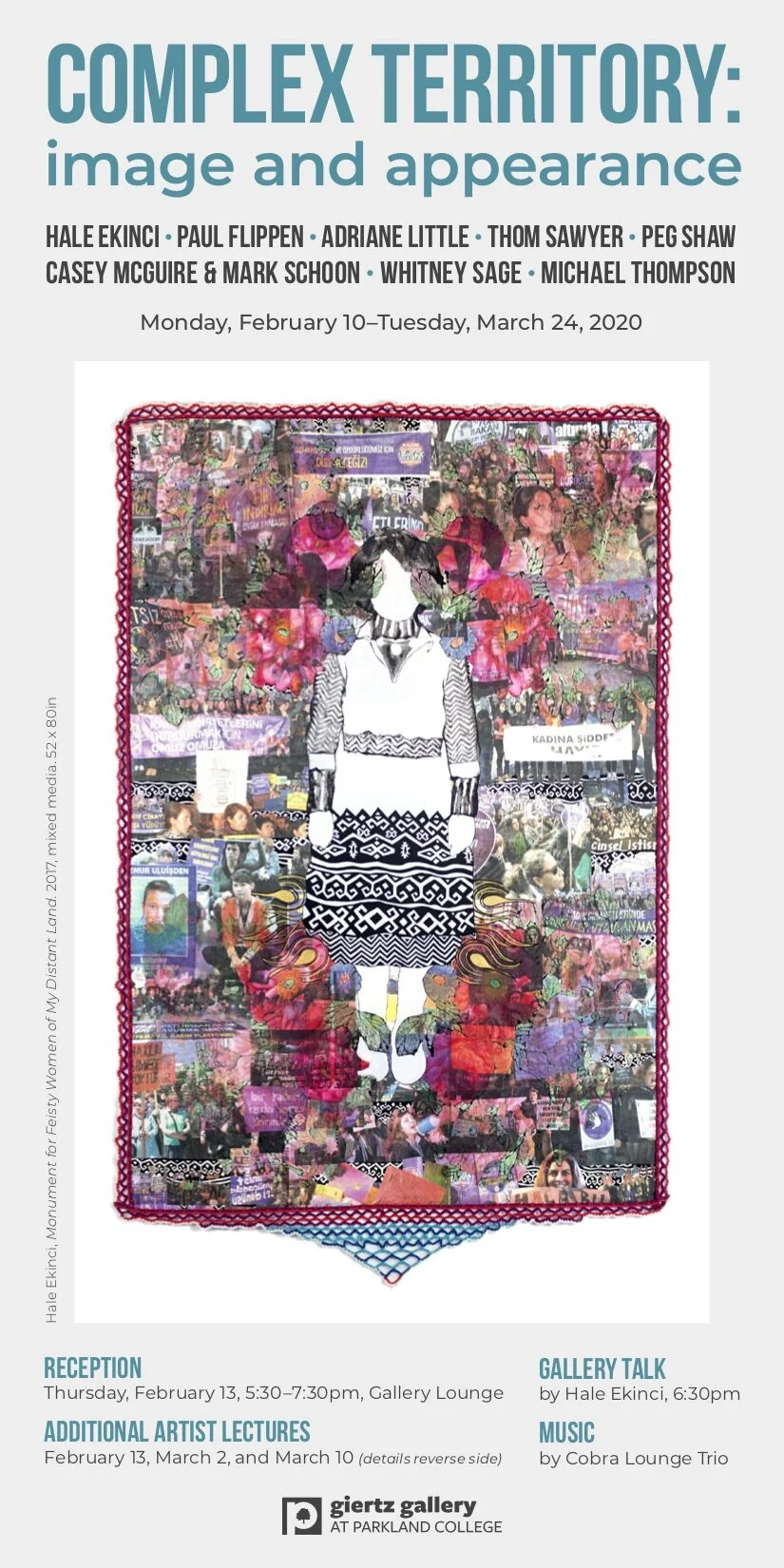
Solo Exhibition: Hand to Hand
Opening reception: Friday, November 1, 4-6pm
Artist talk: Friday, December 6
Solo exhibition by Hale Ekinci, Engaged Artist-In-Residence, Spring 2023
View exhibition gallery photos
Process Gallery, Gayle Karch Cook Center for Public Arts & Humanities at Maxwell Hall, 750 E. Kirkwood Ave. Bloomington, IN
November 1, 2024 through January 10, 2025
The Cook Center’s Engaged Artist-in-Residence program brings two working artists to the Bloomington campus each year to work and interact with IU students and community members through a series of workshops, outreach projects, and exhibitions. The residencies are designed to advance a model of “engaged” artistic practice that supports artists whose careers can be significantly furthered by access to IU’s resources in curation, collections, and research, and who can, in turn, activate those resources in new ways and demonstrate new engaged modes of artistic exchange for the Bloomington community on, and off campus.
Exhibition statement:
A direct translation of the Turkish idiom “el ele,” this exhibition by artist Hale Ekinci reflects her focus on connection and community building during her artist residency. Through video, installation, ceramics, and a diverse range of mixed-media textile works-embroidery, textile design, photography, painting, crochet, and printmaking—Ekinci explores themes of touch, body language, intimacy (particularly in femme relationships), and the immigrant experience.
During her engaged residency at the Gayle Karch Cook Center for Public Arts & Humanities, Ekinci conducted research at the archives of the Kinsey Institute and the IU Museum of Archeology and Anthropology. Inspired by her findings and the local landscape, particularly a sign discussing “immigrant species” on a hiking trail, she created patterned textiles using the IU Eskenazi School of Art, Architecture and Design Fibers Department’s large-format fabric printers. These textiles serve as both canvas and backdrop for the exhibition.
The vibrant mixed-media works delve into the social organization of diverse cultures, merging Islamic ornamentation, local “immigrant” plants, and photo collages of cordial women, cross-dressers, and body gestures. As a new American citizen, Ekinci grapples with her roots in a collective culture while celebrating her individualistic tendencies. Through a femme-centric lens enriched with symbolic Ottoman patterns, such as the tulip and the carnation, as well as images of “immigrant” flora like garlic mustard, the works reveal the complexities of relationships, the interpretations of gestures, and humanity’s representation of the natural world. Photographs of individuals are transformed into intricate patterns intertwining with floral motifs, evolving the concept of the “individual” into the “collective”.
Ekinci is particularly drawn to the nurturing energy of femme spaces and the symbiotic nature of these communities as safe havens. Central to these gatherings are plants, food, conversation, and collective crafting, all woven into the exhibition. Through her work, Ekinci examines expressions of intimacy and the nuanced interpretations of closeness, focusing on female bonds—holding hands, fortune-telling, exchanging personal objects, and sharing amulets.




























